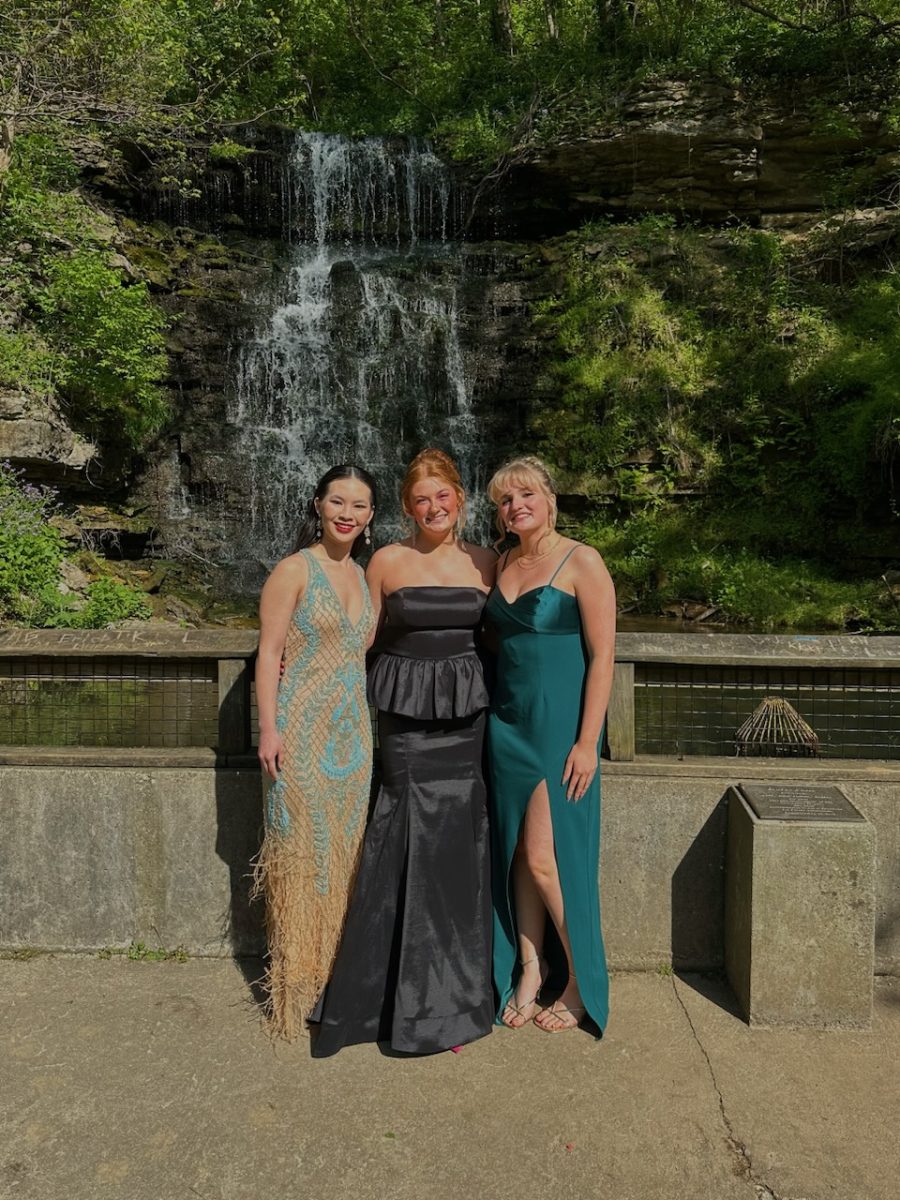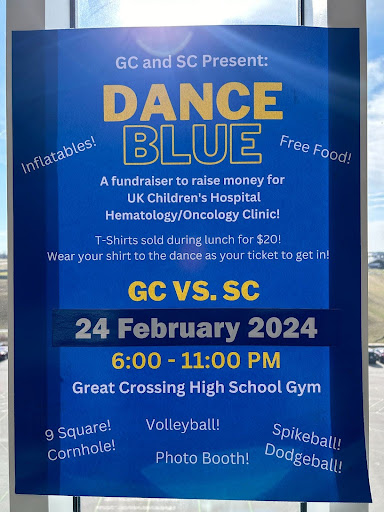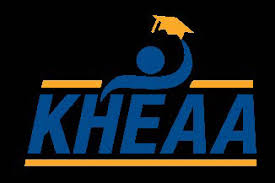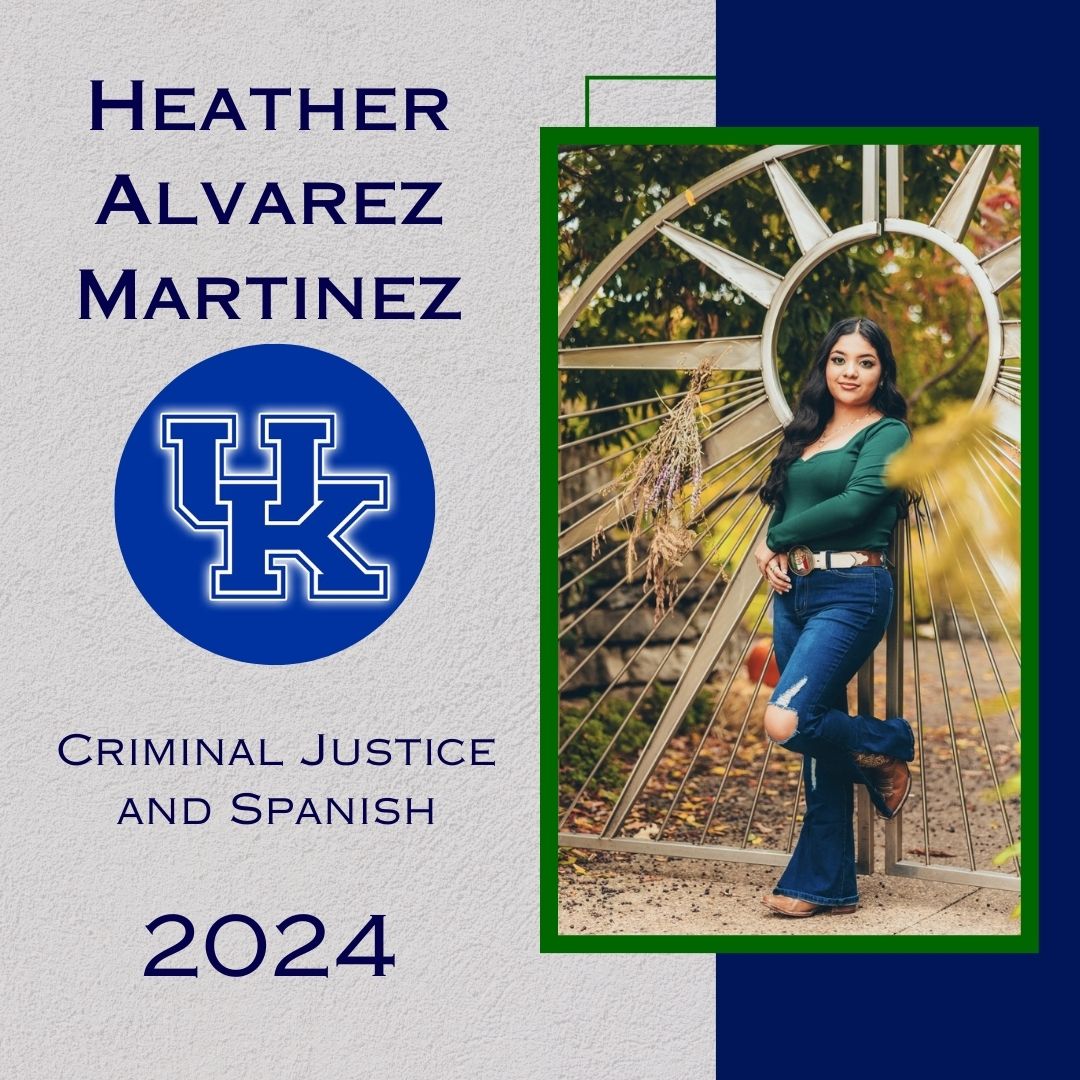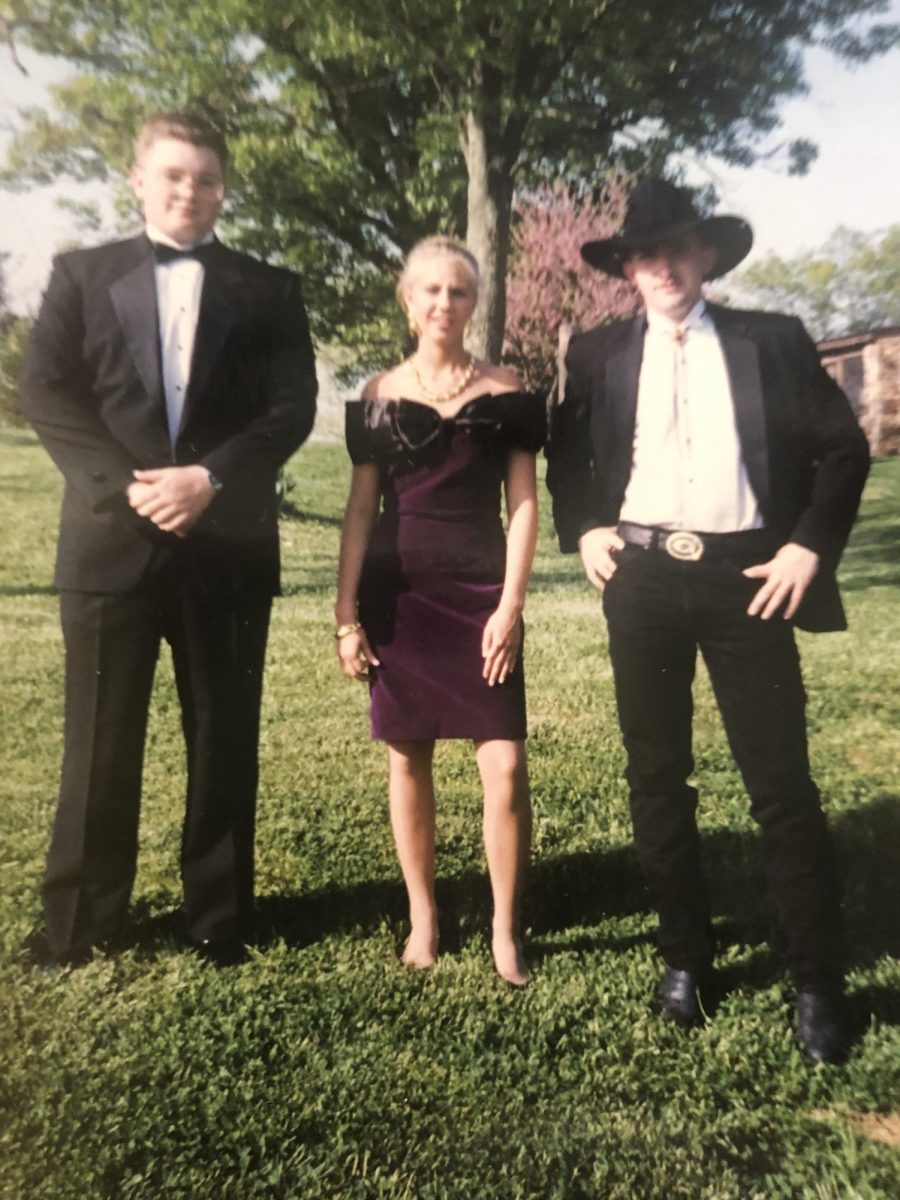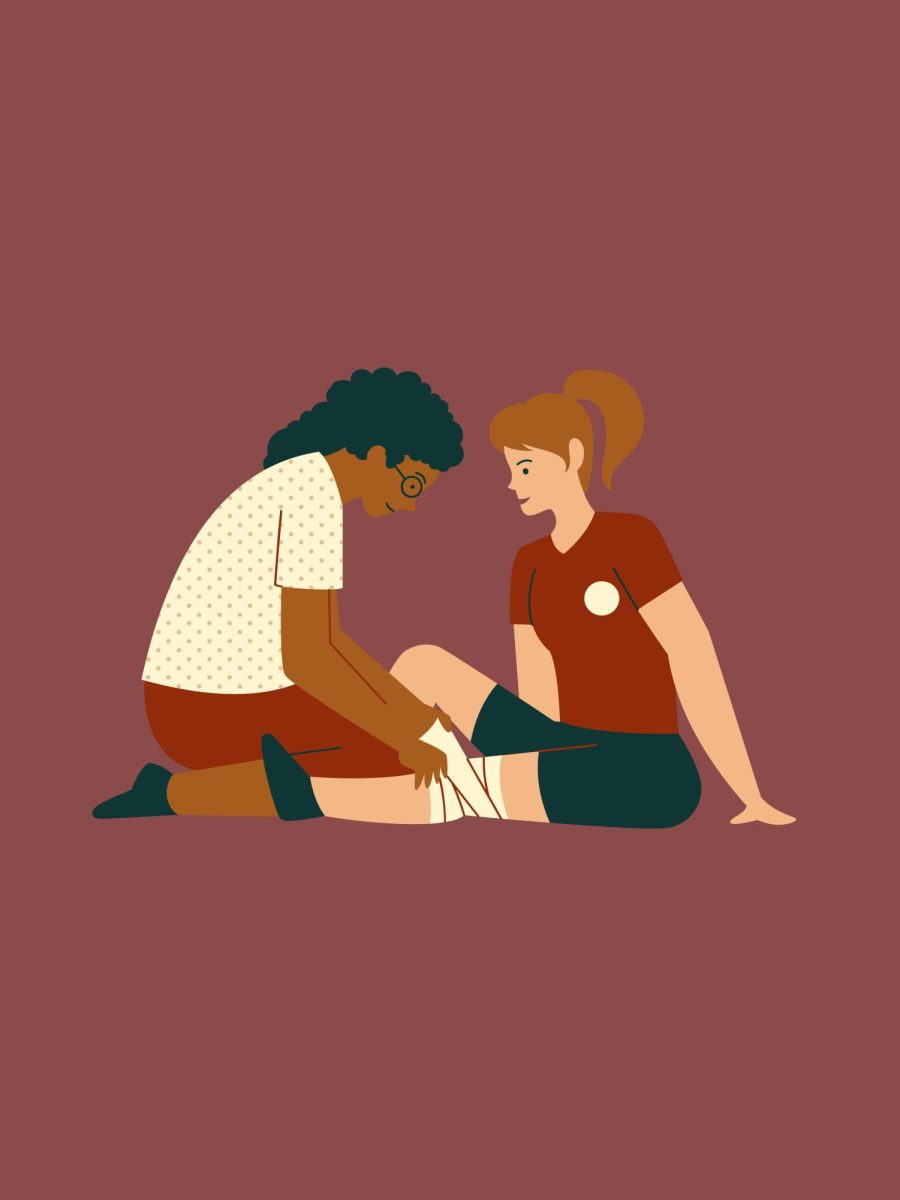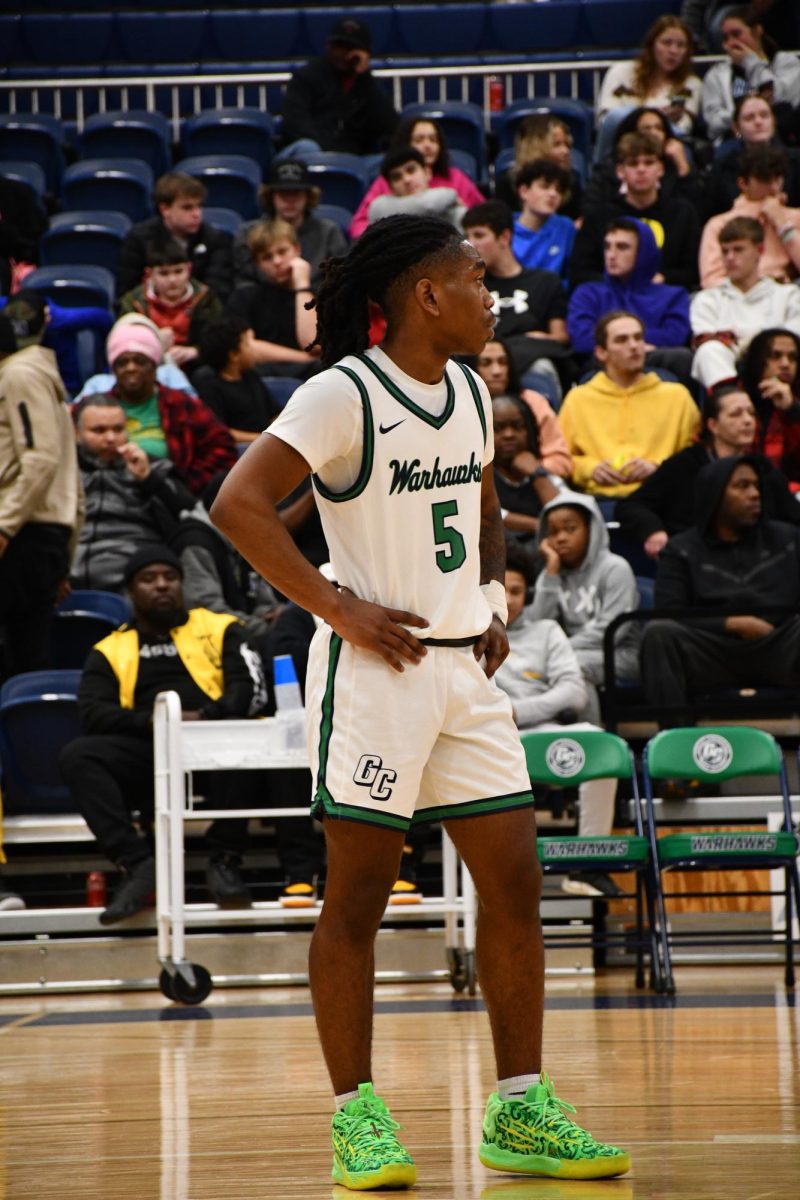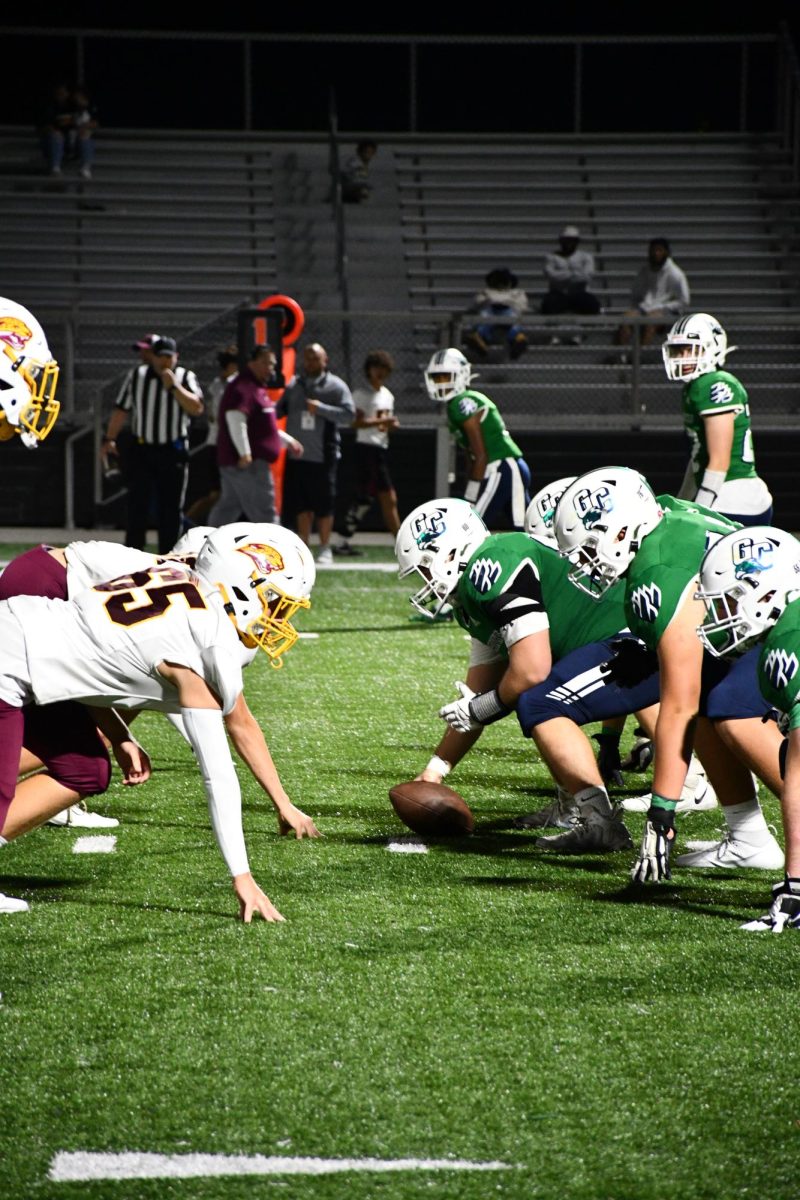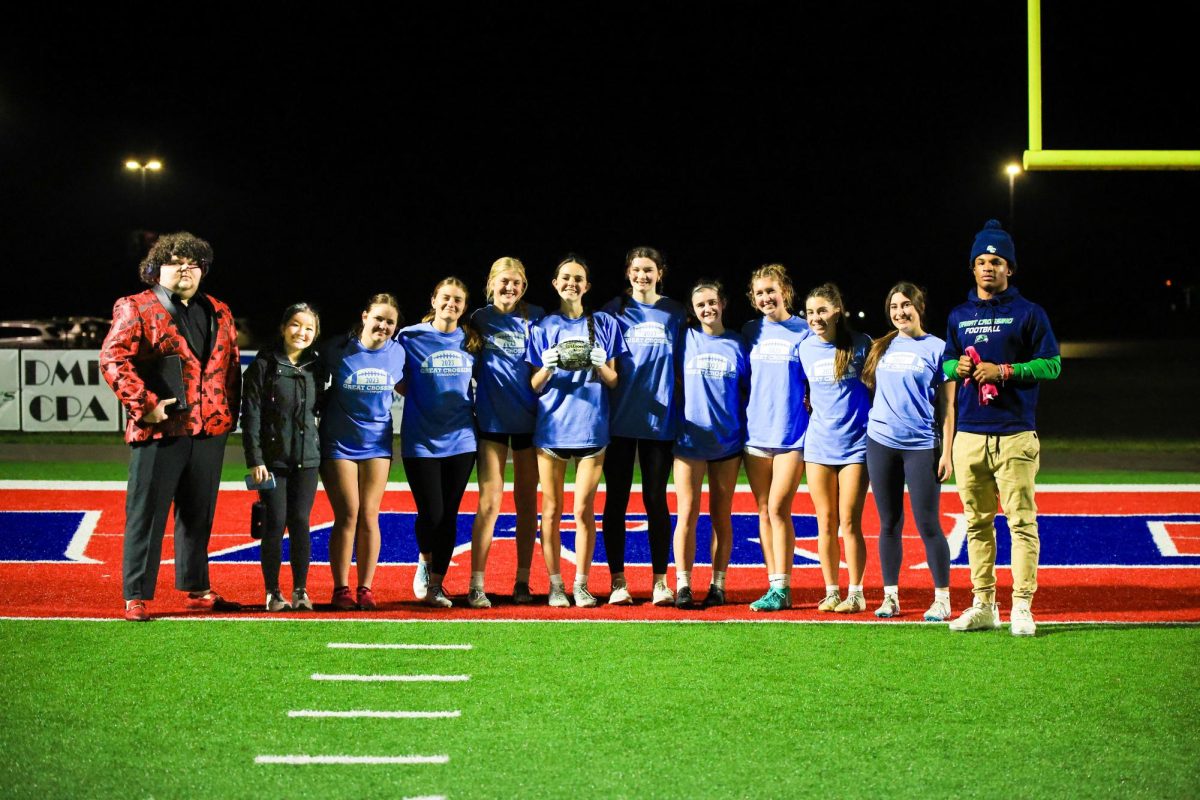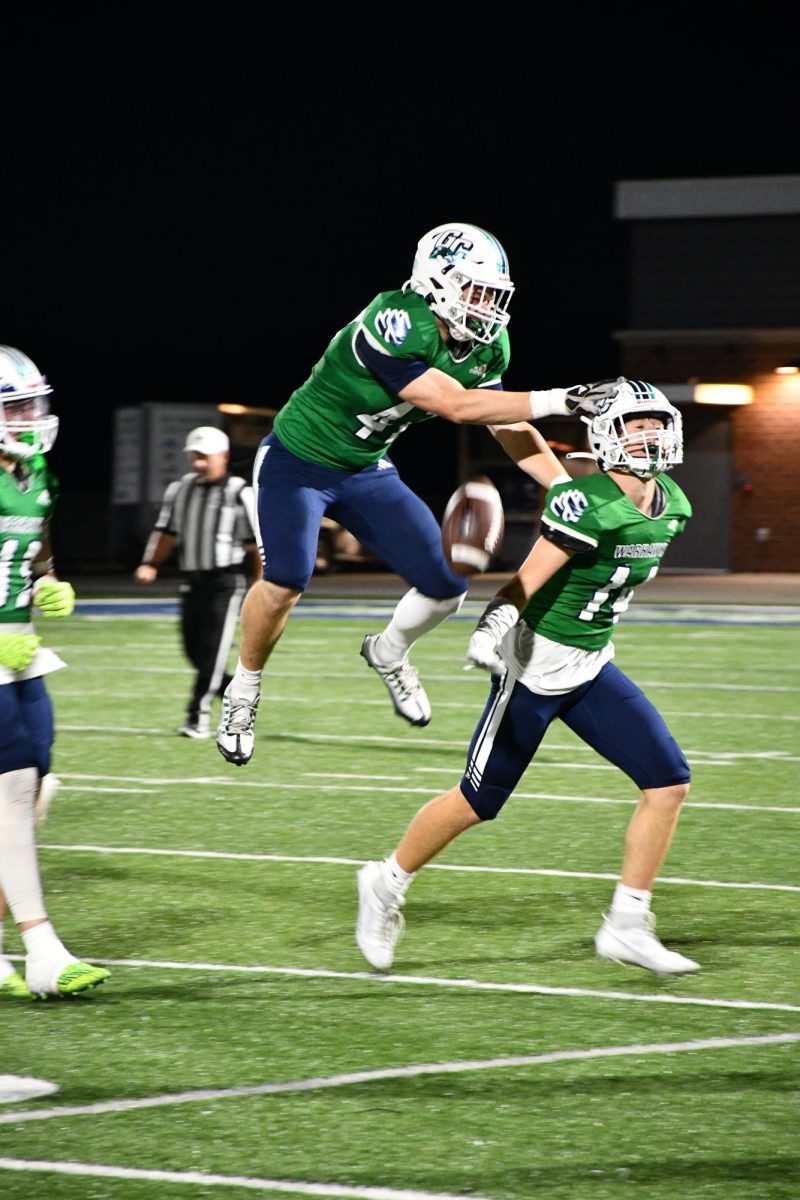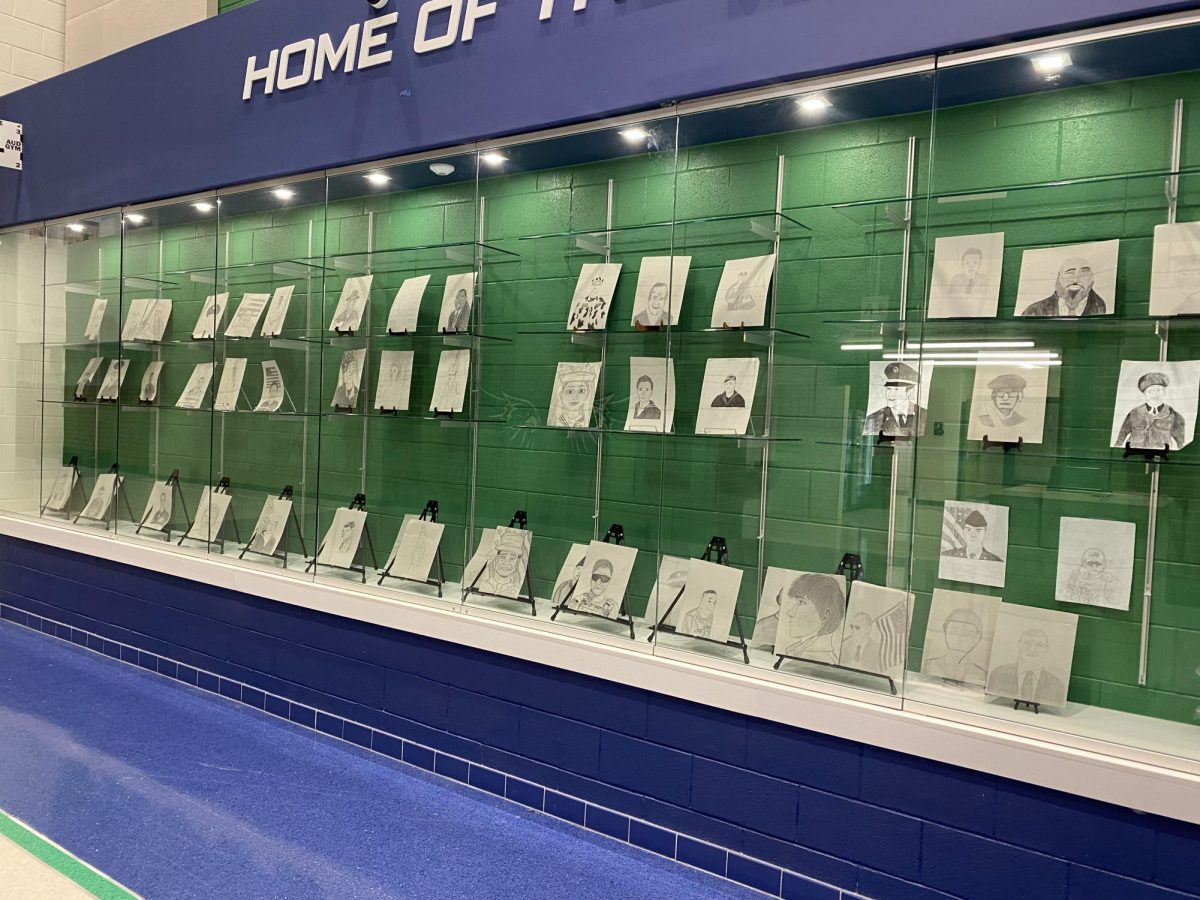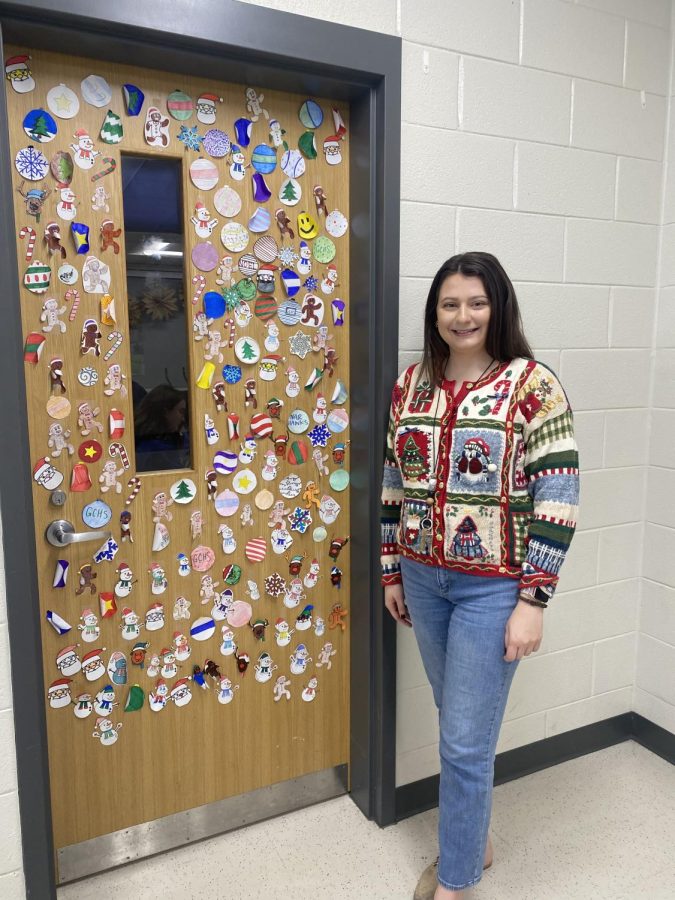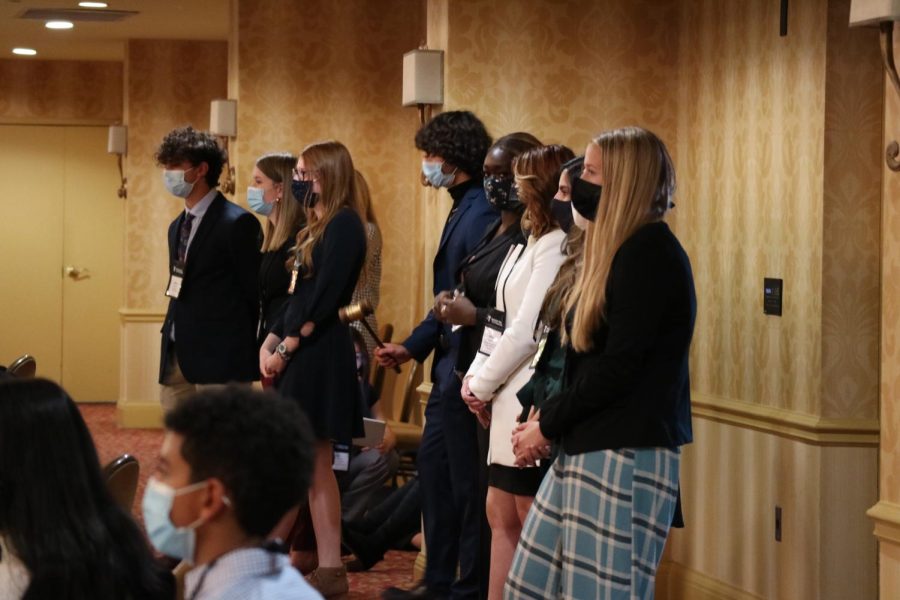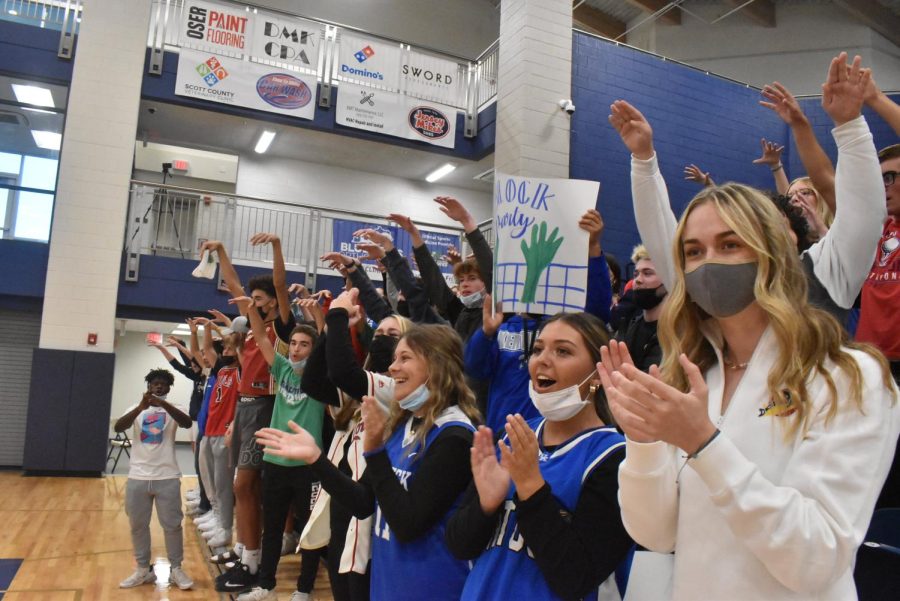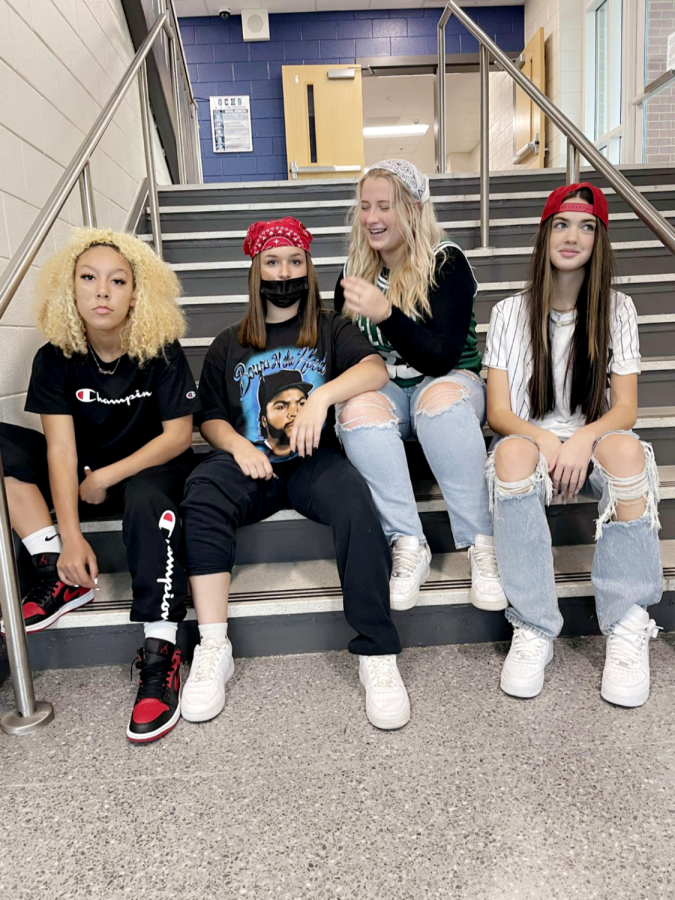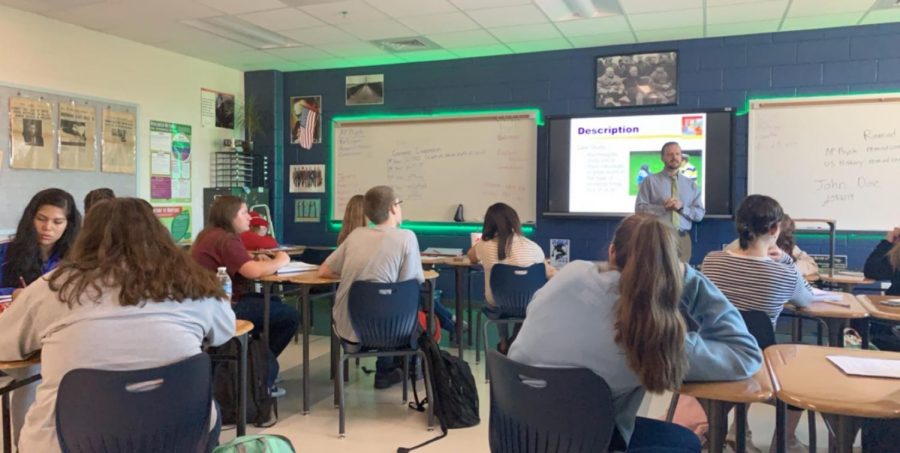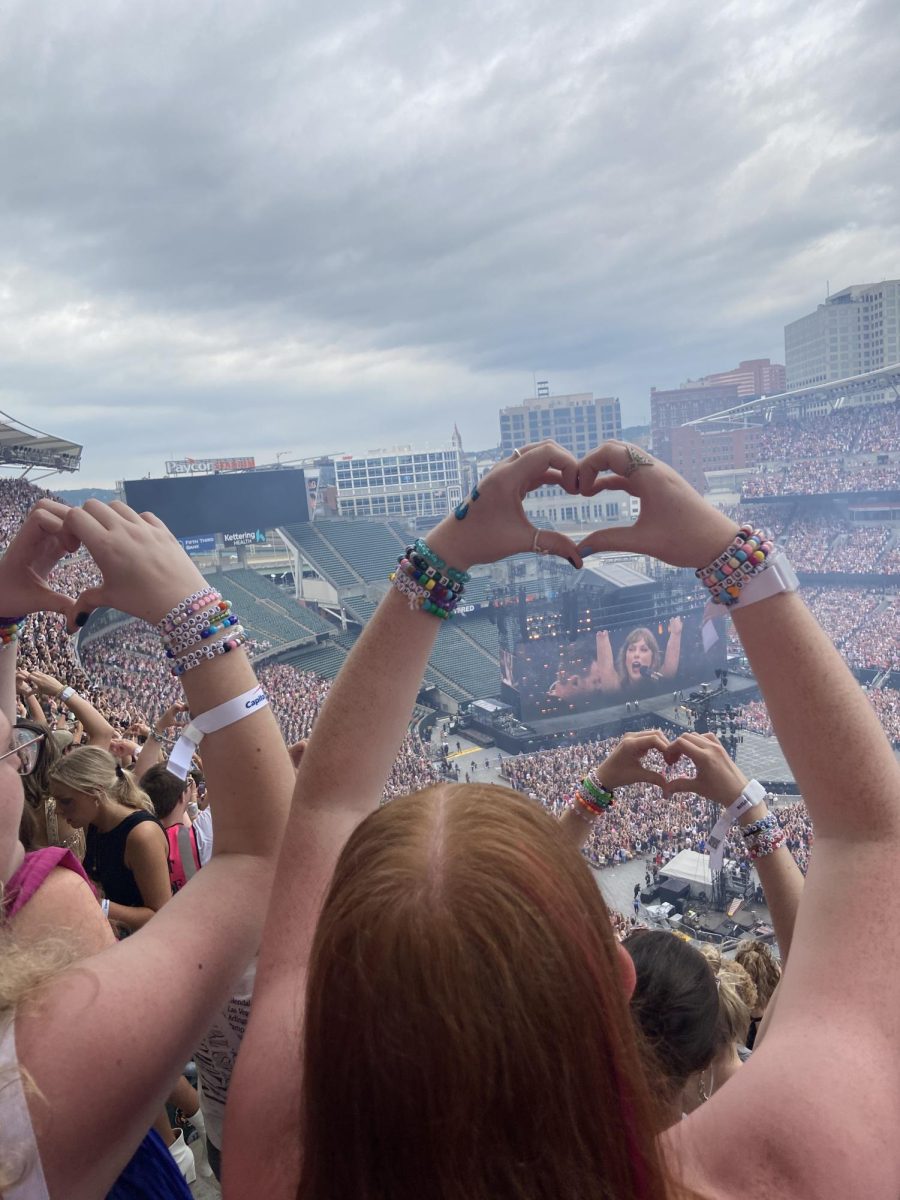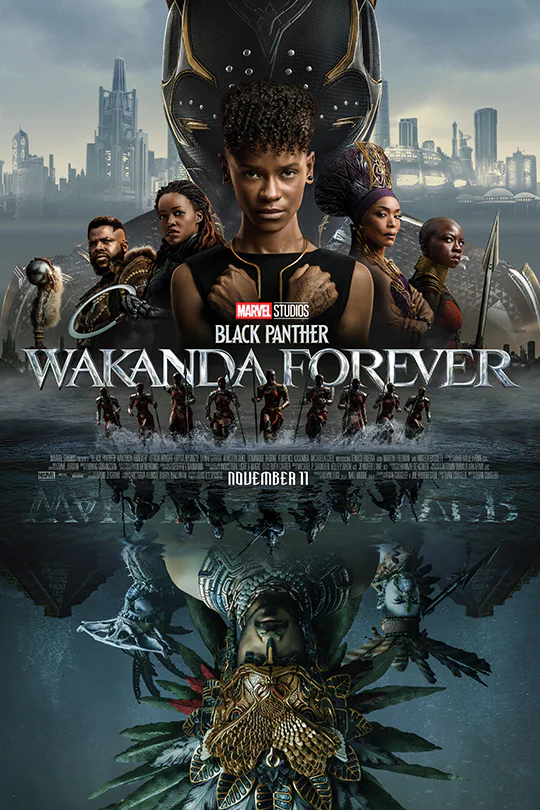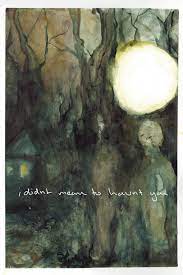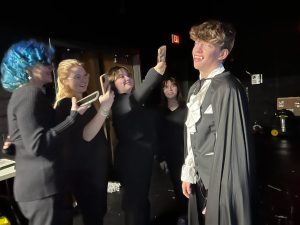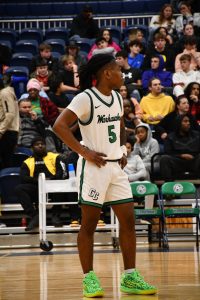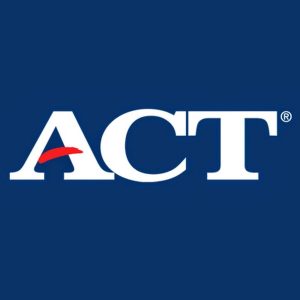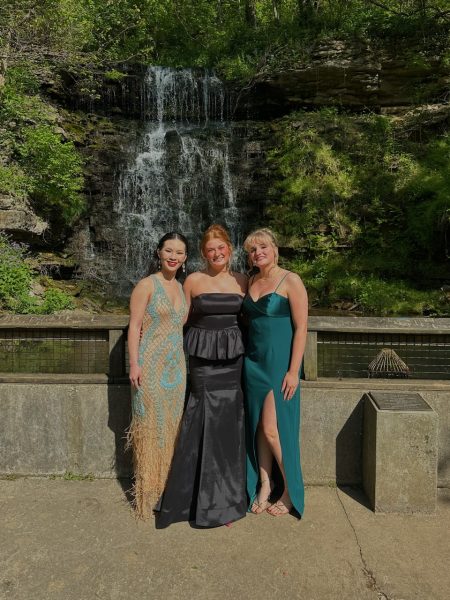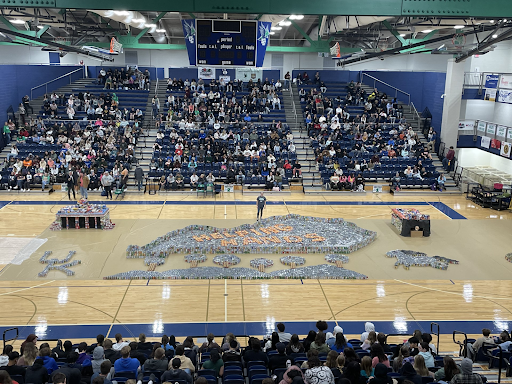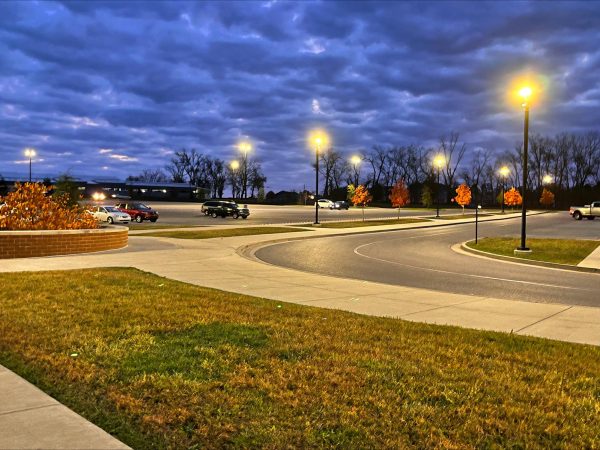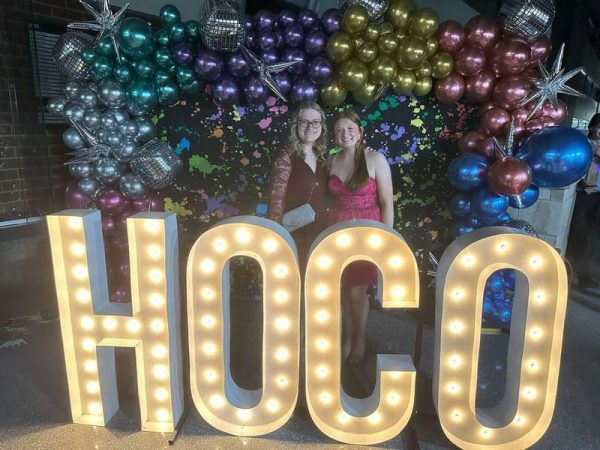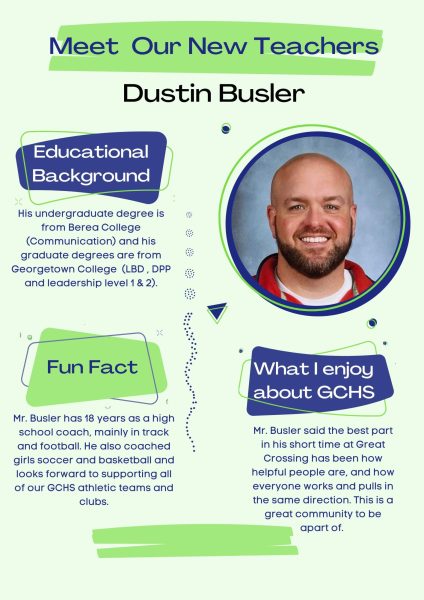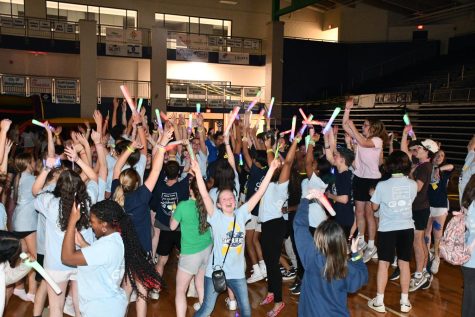Teen Court Provides Authentic Experiences for Students
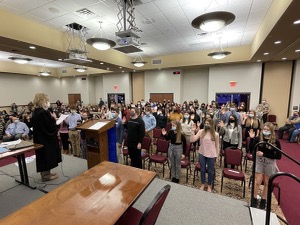
Judge Mary Jane Phelps swears in the new teen court members in November of 2021.
January 12, 2022
When most people think of teen court, they think of the benefits only the juveniles guilty of the crime achieve. However, even those persecuting the defendant are benefitting as well. The juveniles guilty get the chance for their record to be clean, and students conducting the trial get real-world experience in the courtroom. Judge Mary Jane Phelps has worked with students in teen court for over 20 years.
Students can become involved in teen court in a multitude of ways. For some, they agree to come to teen court so their case can be heard and the crime can be taken off their record. For others, they join teen court with the intention to become better at the law, and get a real-world experience in a courtroom with real judges and attorneys.
For those with the intention to learn about the law, they hear about teen court through their teachers, friends, or even family. Anastasia Jaddock, a sophomore in teen court, said, “I heard about teen court through my ECS teachers who were talking about it. Additionally, my sister was involved in it when she was in high school. With there only being four required training sessions for new members, teen court is an extremely educational and fun experience for any student, even those not interested in the law. Teen court’s given me tons of insight on how court procedure works, and also the kind of things that can drive young people in our community to make poor decisions. — William Murphy, junior
Many teens appreciate the chance to help their fellow classmates, and teen court provides that. “I like the idea of helping people, and enjoy being able to help the juveniles,” said Lindsey Knecht, a junior. Knecht talked about her favorite aspect of teen court is being able to hear everything about the crime, and helping those guilty. She mentions how sometimes what the juvenile is accused of is not their fault entirely. “You get to know them and try to get them a lesser punishment, or something that fits what they did,” she said. Being able to know the entire story and getting to know the witness can change one’s whole perspective.
The program gives students interested in the law some first-hand experience in the justice system. “Teen court’s given me tons of insight on how court procedure works, and also the kind of things that can drive young people in our community to make poor decisions,” William Murphy, another junior said. He emphasized the learning experience for students taking on the law roles.
“[Teen court] is a program for juveniles to have their case heard and decided upon by other juveniles, giving everybody a chance to learn and practice real-world law skills on people their own age in a genuine environment,” he goes on to say. Being able to portray and practice real law procedures made Murphy even consider going into the law field for a future career.
However, for some who want to go into law, this program really exceeds expectations. “The more law-related things I involve myself in, like law and justice and teen court, the more I love it. I can see myself pursuing a law career,” Jaddock said. She said enjoys being able to practice being a defense attorney at the trainings. “The process of law and specifics of it generally fascinate me as well as the jobs that are in that career path,” she said.
Although this is a law program, law skills are not the only things students acquire during their time in the program. “It’s a great way to become more comfortable with public speaking, and how to form a comprehensible and cohesive presentation,” said Jaddock. With this year being her first year, Haddock is able to work on her public speaking by going up to the podium every night of training and presenting her mock trial.
For those returning to the program, it is a chance to earn leadership skills. “At the trainings, since I’m an upperclassman, I help when we break down into small groups. I help teach all the new members. You get that leadership role when you get there. Even if you’re not in the law village, it helps you understand what kids our age go through,” Knecht said.
Because Knecht is in the law and justice village and a returning member of teen court, she has the upper hand. She is appointed a leader of a small group of underclassmen to help throughout the training. In their small group, she is responsible for making sure everyone can successfully do their part and present it well.
Teen court is ultimately a program that promotes all kinds of universal skills for students of all ages. “I think teen court is an excellent program, especially for people interested in law. There’s nothing else like it and I would truly cherish it,” Murphy said.

